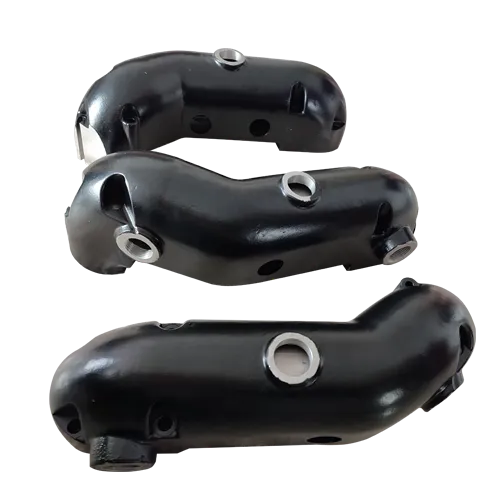Mobile:+86-311-808-126-83
Email:info@ydcastings.com
aluminium alloy for casting
Aluminum Alloys for Casting An Overview
Aluminum alloys have become increasingly popular in various manufacturing sectors due to their lightweight, high-strength characteristics, and excellent corrosion resistance. Among the diverse applications of aluminum, casting is one of the most extensively utilized processes, allowing for the creation of complex shapes and geometries. This article delves into the types, properties, and applications of aluminum alloys specifically tailored for casting.
Understanding Aluminum Alloys
Aluminum alloys are categorized into two main classes wrought and cast. Wrought alloys are mechanically processed into shapes like sheets, rods, and bars, while cast alloys are melted and poured into molds to create intricate components. The properties of aluminum alloys can be significantly influenced by their chemical composition, which typically comprises aluminum and various alloying elements such as silicon, copper, magnesium, manganese, and zinc. These elements are added to enhance certain characteristics, such as strength, ductility, and castability.
Types of Aluminum Casting Alloys
Aluminum casting alloys are predominantly divided into two series based on the main alloying elements
1. Silicon Cast Alloys (Series 4xx.x) Silicon is primarily used in these alloys (e.g., A356, A380), as it improves fluidity, reduces shrinkage, and enhances the casting process. Silicon content ranges from 5% to 13%, promoting better castability and surface finish. These alloys are commonly applied in automotive parts, aerospace components, and general engineering applications.
2. Aluminum-Copper Cast Alloys (Series 2xx.x) This series is known for its high strength and excellent machinability. Copper content can go up to 6.8%, creating alloys that perform well under high-stress conditions. Common applications include aerospace, marine, and defense industries, particularly where high mechanical properties are required.
Other alloying elements such as magnesium and zinc are also used in specific casting alloys to enhance their mechanical properties and corrosion resistance. The selection of the appropriate alloy depends on the desired properties and the intended application.
Advantages of Aluminum Casting Alloys
aluminium alloy for casting

2. Corrosion Resistance The natural oxide layer that forms on aluminum surfaces provides excellent protection against corrosion, extending the lifespan of cast products.
3. Thermal Conductivity Aluminum alloys have high thermal conductivity, which makes them suitable for applications requiring efficient heat dissipation, such as heat exchangers and engine components.
4. Versatility With the ability to mold complex shapes, aluminum casting alloys facilitate the production of intricate designs that would be difficult or impossible with other manufacturing processes.
5. Recyclability Aluminum can be recycled several times without losing its properties, making it a sustainable choice in manufacturing.
Applications
Aluminum casting alloys are used in a wide variety of applications, thanks to their unique properties. In the automotive industry, they are employed for engine blocks, transmission cases, and wheel rims. In aerospace, aluminum alloys are favored for aircraft frames, landing gear components, and fittings due to their high strength-to-weight ratio. Additionally, the electronics sector uses aluminum casting for heat sinks and enclosures, capitalizing on its thermal conductivity benefits.
Conclusion
In summary, aluminum alloys for casting offer an advantageous combination of lightweight properties, strength, and corrosion resistance, making them suitable for diverse applications across multiple industries. As technology advances, the demand for these alloys is likely to grow, pushing innovation in alloy formulations and casting techniques. With ongoing research and development, the future of aluminum casting alloys appears bright, solidifying their role as a critical material in modern manufacturing.
-
Why Should You Invest in Superior Pump Castings for Your Equipment?NewsJun.09,2025
-
Unlock Performance Potential with Stainless Impellers and Aluminum End CapsNewsJun.09,2025
-
Revolutionize Your Machinery with Superior Cast Iron and Aluminum ComponentsNewsJun.09,2025
-
Revolutionize Fluid Dynamics with Premium Pump ComponentsNewsJun.09,2025
-
Optimizing Industrial Systems with Essential Valve ComponentsNewsJun.09,2025
-
Elevate Grid Efficiency with High-Precision Power CastingsNewsJun.09,2025











